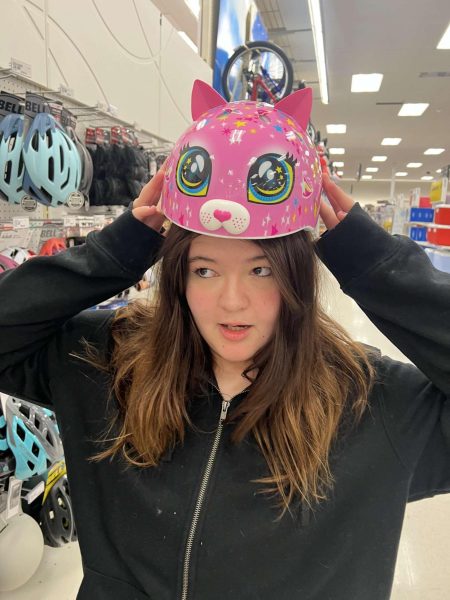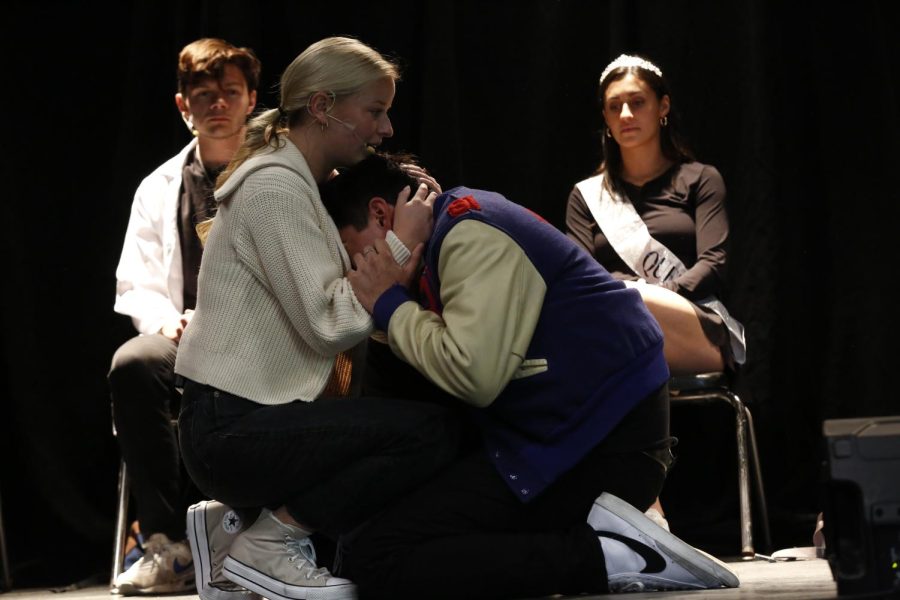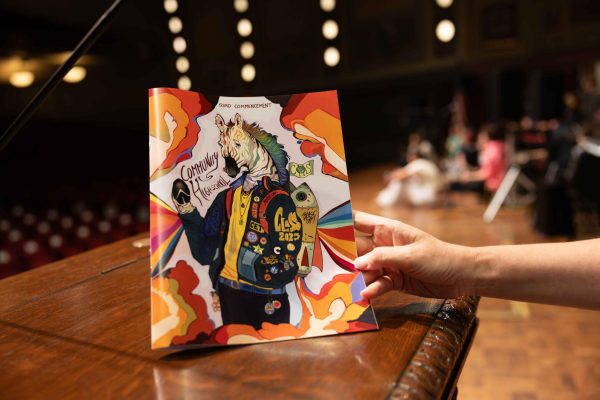The Debut of “Painless”
A story of grief, suffering, tragedy—and perhaps most monumental—recovery.
Five chairs and five actors. It’s a simple setup, but with deep implications.
On Monday, Sept. 26, 2022, CHS made history by being the first high school audience of Painless: The Opioid Musical. Community students from Becky Brent’s health classes, the Depression Awareness Group (DAG) and the Substance Abuse Club were able to attend the show.
The musical, written by University of Michigan grad Jacob Smith, tells the true stories of survivors of opioid addiction. Smith began writing Painless when he was nineteen.
”The show was first thought of by…Chad Brumett,” said Smith, talking about the origins of the musical. Brummet, a doctor at Michigan Medicine, wanted to find a way to communicate the dangers of drug abuse to students without sounding repetitive or condescending. “Something like this, that engages students in a different way, kind of adds on and provides some additional benefit.” Thus, the idea for the musical was born.
Early in the process, Brumett facilitated a meeting at the University of Michigan. This meeting consisted of Smith and his team, and a group of spokespeople for families against narcotics. Hearing the spokespeople tell their stories about opioids hit a chord in Smith.
“We got to hear from the voice of people who are most affected and who have the most visceral life experience involving the subject, their stories from their own mouths. And so then we just took those stories and immediately musicalized them and created what we have now,” Smith said about the writing process.
One song, in particular, was very personal to Smith. “Boy in the Box” was inspired by real-life former addict, David Clayton, whose addiction began at only seventeen. At the meeting held by Dr. Brumett, Clayton was one of the attendees.
“He suffered for years and years and years and years as a homeless heroin addict about as bad as you can imagine,” Smith said. “And Clayton is not the kind of person you would see and consider to be a part of that kind of statistic. And I think that’s the most amazing part about it.” Clayton is now in the process of recovering from addiction. He is a homeowner and has a girlfriend. “He’s gotten a life that he has built together with his own hands,” Smith said. Clayton is trying his best to raise awareness about addiction, and spread the fact that addiction is not just a statistic—it’s people.
Clayton’s story is really what jump-started the project and what gave Smith his inspiration.
”I went home afterward and wrote Boy in the Box and not a lyric has changed over five years,” Smith said.
This musical wasn’t designed to be flashy or on broadway. Instead, it’s intended to be shown in schools, for teens similar to the character’s ages. The cast consists of characters the audience can relate to, such as a teenage girl fixated on her looks, or a jock facing the pressure of colleges and scholarships.
“Our aim is for people your age, for 14 to 17-year-olds to 18-year-olds, to be able to get into the ideas of fully understanding the depth of what it is you’re doing,” Smith said.
Brumett and Smith both agree that having a middle-aged doctor preach to children “drugs are bad” will do relatively nothing. They are hoping this project will show, in a more personal way, that opioid addiction is a real, and dangerous thing. And that no matter who you are, you can fall into it.
Painless is a story of grief, suffering, tragedy—and perhaps most monumental—recovery. The message of this musical is something that affects almost everyone who’s ever attended high school. And, said message is one that needs to be spread, and destigmatized.
“Talk about it with your peers who are in the audience today,” Smith said. “Go in the hallway, go home, into your other classes with your peers who weren’t here today and have conversations. And even if those conversations are difficult, that’s okay. But just start the dialogue, because that’s where change happens.”
















